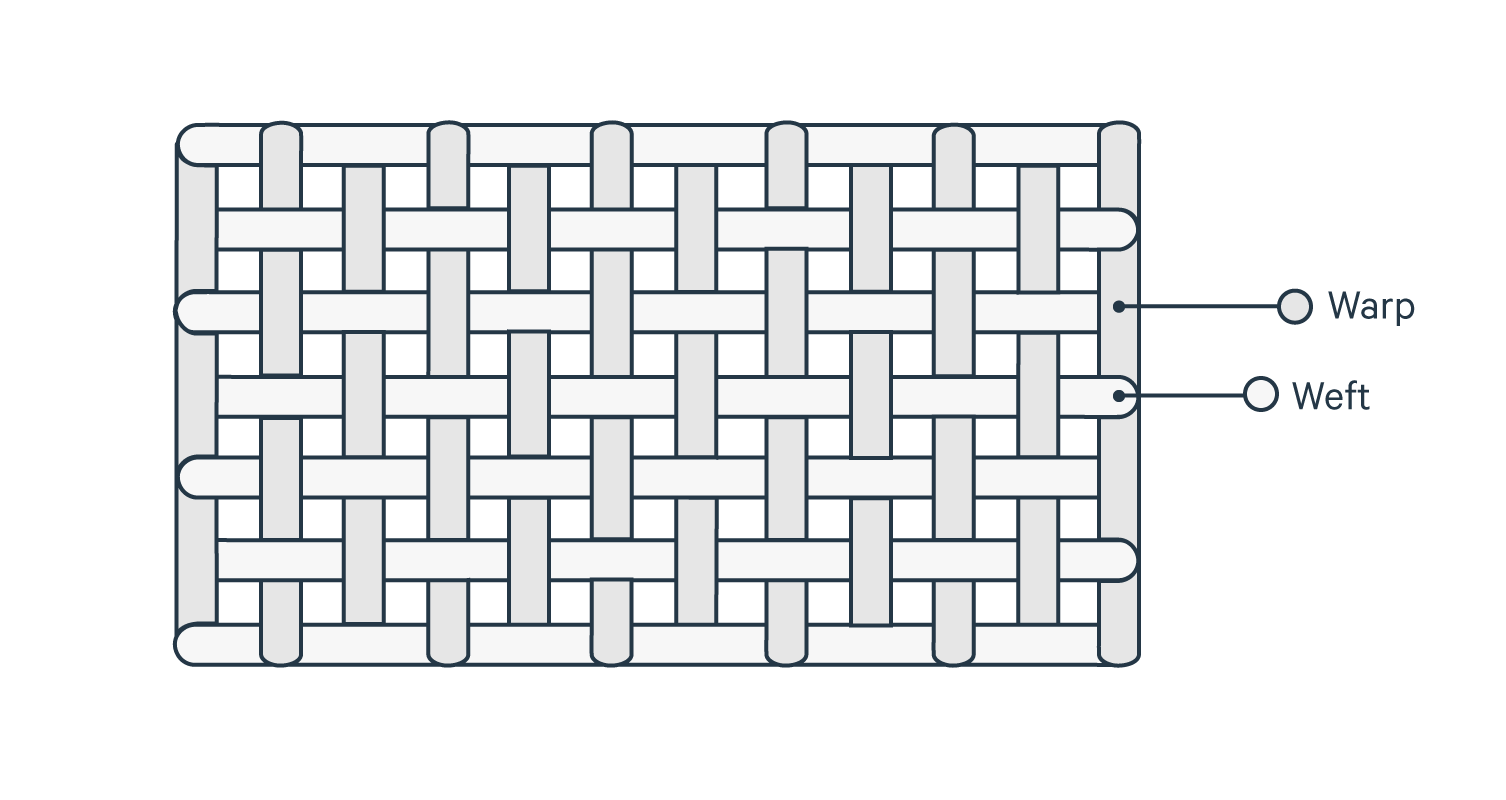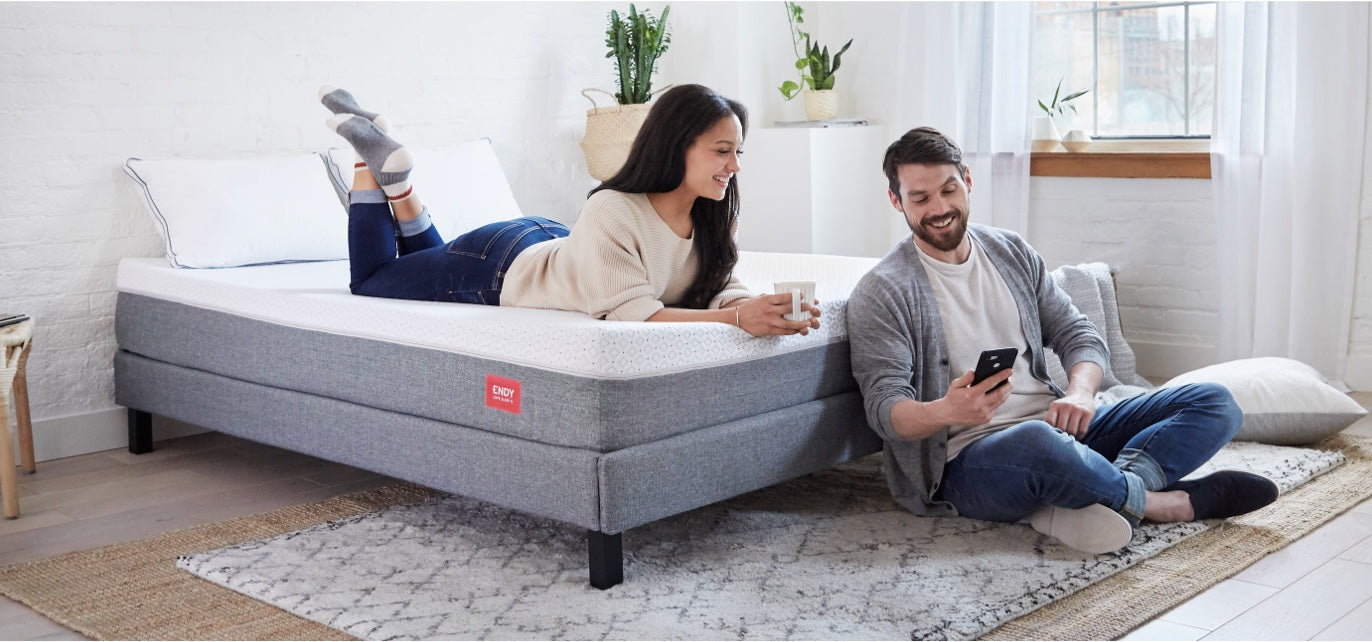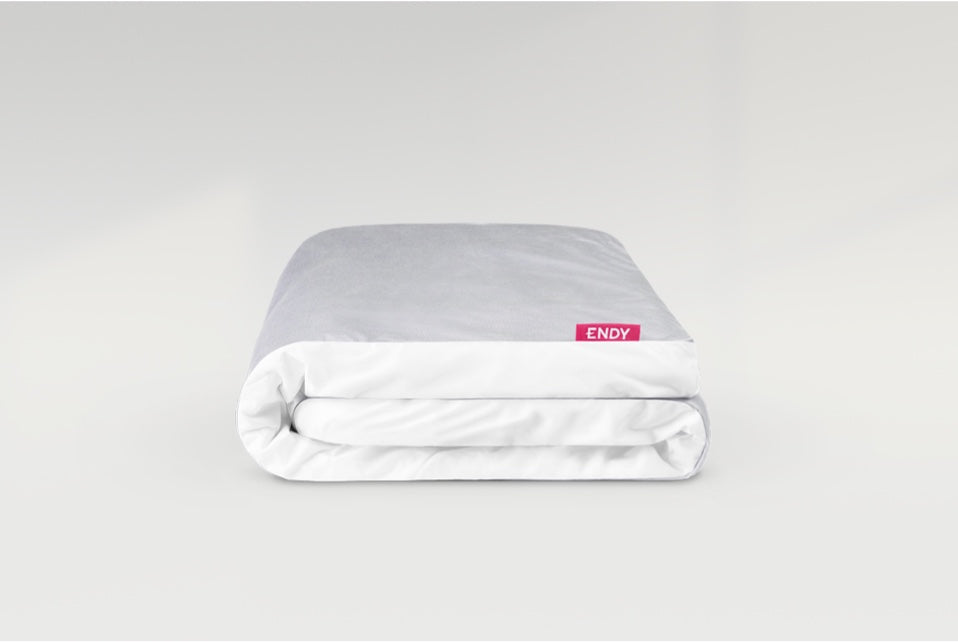March 24, 2022
What's the Best Thread Count for Sheets? Learn the Industry Secret
By Bénédicte Pelletier
While a high thread count can be a sign of quality sheets, it can also be a marketing ruse. To get the whole story, read up on what the numbers actually mean and what thread count is good for bedsheets.
First, What Is Thread Count?

Thread count tells you how many threads are in one square inch of fabric. This number includes horizontal threads (called weft) and vertical threads (called warp). Sheets with a 600 thread count have 600 threads per square inch, while 200 thread count sheets have 200 threads per square inch.
In other words, thread count indicates how densely a fabric is woven. While those numbers matter, a higher thread count does not automatically mean higher quality. Other factors such as ply, weave, and fabric type have to be taken into account (more on this later!)
What Is a Good Thread Count for Sheets?
To get a high thread count per square inch, you need very fine threads. And the finer the threads, the softer and denser the fabric will feel—that’s why people believe that a high thread count equals quality.
The reality is—numbers can be deceiving. The higher you go in thread count, the more prone your sheets become to rips, snags, and pilling. Why? Well, to increase thread count, extra threads can be woven into the main threads, or several smaller and weaker yarns can be spun together. These threads are then factored into the overall count, but don’t enhance the sheets in any way and actually make them weaker and rougher.
For example, to achieve “1000 thread count,” strong, single-ply yarn is replaced with many weaker threads spun together (called plies). Fabrics with several plies are less durable than single-ply fabrics and feel rougher and more rigid.
"Most weavers consider 500 thread count to be the maximum number of threads that can be woven into a fabric."
Bottom line—thread count matters to a certain point, but most of it is just marketing. Quality, single-ply sheets range from 200 to 500 thread count (anything over 500 involves plies). While Endy’s Organic Cotton Sheets “only” have a thread count of 300, their quality is superior to most 1000 thread count sheets.

Endy Sheets have a 300-thread count, woven in single-ply yarn of 100% organic cotton. Our luxurious sateen weave is breathable, durable, and incredibly soft for the best sleep of your life.
Shop the Organic Cotton SheetsFabrics & Weaves
Aside from thread count, what else should you look for when buying sheets? Good question. Let’s compare the most popular types of weaves and fabrics for sheets.
Weave
There are two main types of weaves for bedsheets: percale and sateen.
Percale has the same number of horizontal and vertical threads (weft and warp), and the cotton is combed and woven tightly. It's a definite upgrade compared to basic weaves.
Sateen has a higher percentage of vertical threads (warp), resulting in silky sheets with a slight sheen finish. Sateen weave also provides the most luxurious feel—it’s often described as buttery soft.

Fabric
Out of all the fabric choices, cotton and cotton/poly blends are the most popular.
Cotton/polyester blend
Since polyester is denser and heavier than cotton, a cotton/poly blend won’t be as breathable or cool as pure cotton. Polyester makes sheets extra durable because it’s a synthetic material, but the environmental cost is also higher.
100% cotton
100% cotton sheets are hard to beat for their breathability, lightness, and skin-friendly properties. With that said, not all cotton is the same—for the best quality, look for long-staple fibre cotton. Longer fibres mean a softer, smoother texture and excellent durability.

When it comes to the best thread count, fabric, and weave for excellent sleep—we’ve done our research. A sateen weave with a thread count of 300 woven in a single-ply offers the perfect balance of softness, comfort, and durability. That’s why we’ve designed our sheets with exactly these features—and 100% organic cotton for better sustainability.
SHOP THE ORGANIC COTTON SHEETS
